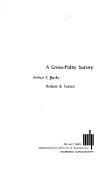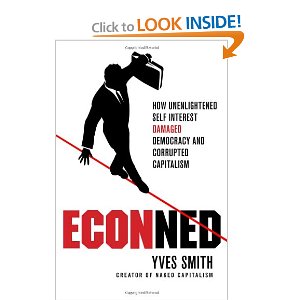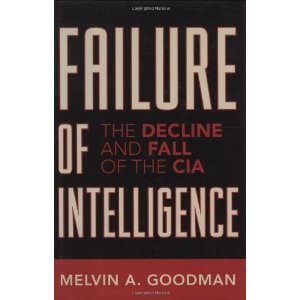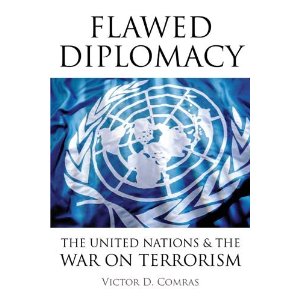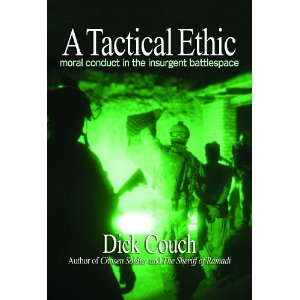
Worth reading for Nathaniel Fick's introduction alone. And then some….
Dick Couch
Dick Couch is a graduate of the U.S. Naval Academy and served with the Navy Underwater Demolition and SEAL Teams in Vietnam. He is the author of twelve other books, including The Warrior Elite, Chosen Soldier and SEAL Team One. A resident of Ketchum, ID he is a frequent guest on radio and TV talk shows. He has lectured the Air Force Academy, the Naval Special Warfare Center, the JFK Special Forces Center and School, the FBI Academy, the Naval Postgraduate School, The Joint Special Operations University and The Academy Leadership Forum. Recently he served as adjunct professor of Ethics at the U.S. Naval Academy.
From National Defense University Review:
The message of this slim volume is simple: the two strands of a unit's technical competence and its moral compass are equally critical, with the moral health reflected in the actions and words of our junior leaders possibly more important to combat effectiveness— especially in the insurgent environment, where the war is waged and won at the small unit level and the target is not the insurgent, but the trust and support of the local population.
5.0 out of 5 stars A fantastic book to help set a warrior's moral compass
April 20, 2010
ByJ. Rudy “Major, USAF” (Fairfax, VA) – See all my reviews
“A Tactical Ethic: Moral Conduct in the Insurgent Battlespace”, by Dick Couch, is a handbook reminding the men and women who put boots on the ground that actions that seem logical to you, can have a far different effect than anything anticipated. Having served as a Navy SEAL during the Vietnam War and professor of “Moral Reasoning for Military Leaders” at the United States Naval Academy, Couch offers his expert insights to the current and next generation of warriors. Americans need to look no further than the embarrasment caused by bored, misguided soldiers at Abu Graib to understand why a book such as this is needed.
Couch begins the book with a statement of the moral problems currently facing our military. He writes, “If the Vietnam War was the first war in which TV cameras roamed the battlespace, then Iraq and Afghanistan are the first extended stuggles in which digital imaging, text messaging, and cell-phone cameras are commonplace. Today there is far more opportunity for a bad act to be reported.” Couch proposes that the speed and ease of sharing that information will end up losing the fight for the “human terrain” — the support of the local populace, for which the insurgents are also competing.
With a basic understanding of the problem, Couch investigates how America takes the current generation of youth and transforms the insecure teenageers into bold, confident men that serve on the front lines. Feminists may feel slighted that the book does not focus on women, but Couch offers very compeling arguments as to why women are not are not central to the issues addressed earlier. He then looks at ethics training integrated with the basic training of the Army and Marine Corps, neglecting the Air Force because it does not engage in the same type of small-unit combat actions that routinely interact with the local populace. He rounds out his analysis of the warrior ethic training with by examining the (lack of) integration of ethics training with the advanced training of the various Special Forces.
Couch concludes the book by proposing “Battlefield Rules of Engagement (ROE)”, or the keys to moral success. He perfectly summarizes the the common vision of all warriors “All share a universal goal: to prepare appropriately for the fight, conduct themselves in battle with courage and virtue, win the fight, and return with honor.” In this age of pocketcards, I'm sure that the 10 ROEs he proposes will make their way onto the next set issued to the men and women going into harm's way. They are succinct, understandable, and right on the mark. I highly recommend this book for NCOs and company grade officers — your leadership will set the moral compass for the men and women who serve under you. This is a great book to help you chart the course.

Phi Beta Iota: Advanced Information Operations (IO) must focus heavily on the spectrum of morality, both within blue forces and red forces, and all along the other tribes of intelligence. Will Durant is not alone, when he says in Lessons of History, that morality is a strategic asset of priceless value. The arrogant lose their grip of reality–and morality–before they lose their power.


